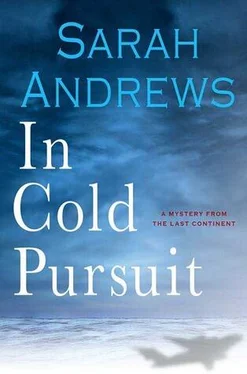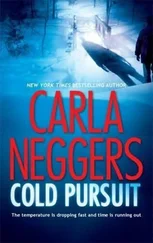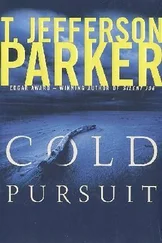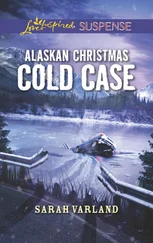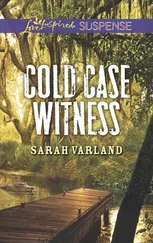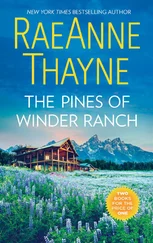“The ANDRILL Project,” Valena said.
“Yeah.”
“They’re gathering data from the sediments that are dropped by the ice as it slides off the edge of the continent. The ice carries all sorts of clues about climate variation.”
“That’s what you’re doing here, right? Gathering climate data from the ice?”
“Yes. When we get our core back to the States we’ll analyze the stable isotopes of oxygen and hydrogen in the water, the gasses caught in the bubbles, and also the fine dust that settled out of the air into the ice.” She began to walk back down along the trail, descending the hill.
“Peter followed her. I didn’t know that there were different isotopes of oxygen and hydrogen in water,” he said.
“Oh, yes, there are,” she said, bending down to tighten the laces on the soft FDX boots in the hope that her feet would not slide forward inside them. “Most of the O in the H 2O that makes up the snow that recrystallizes to form all this ice is good old oxygen 16—eight protons and eight neutrons—but a small percentage of oxygen has extra neutrons, making oxygen 18, which is heavier. The thing is, the ratio between the two—how much 16 versus 18—is governed by the temperature of the clouds from which the snow falls.”
Peter said, “Oh, I get it. You can figure out when the global climate was warmer and when it was cooler by measuring that ratio.”
Valena shrugged. “The isotope ratios are a proxy for temperature. It’s simple physics. The laws of thermodynamics. The hydrogen in the water molecule is a slightly different story. Hydrogen typically has just one proton, but sometimes two. We call that deuterium. How much deuterium you find in the ice is a reflection of the temperature of the water that evaporated to form the cloud. So by analyzing the isotopes in the ice, you can read the surface temperature of the ocean waters up in the tropics where the water left the ocean and entered the atmosphere as vapor.”
“So even though you drill in Antarctica, it’s not just about Antarctica.”
Valena laughed. “Why would the taxpayers who are paying for this research care how cold it is in the middle of Antarctica? We chose the WAIS Divide site because it will give us a global record. We’ll study the dust in the ice to figure out where it came from and how hard the wind was blowing. That tells us about atmospheric circulation patterns throughout this hemisphere. The amount of salt tells us how far into the ocean the sea ice extended around Antarctica, another indicator of ocean currents and global temperature. Organic compounds tell us about marine productivity in the southern oceans. The chemical and optical properties of summer snow and winter snow are different, so we can make measurements on the ice core that identify each annual layer of snowfall. It’s like counting tree rings, really old tree rings. But the gasses, they rock.”
“Gas in the ice?”
“Yeah, when the old snow gets buried by the new snow, it gets compacted into ice. The gas that was in the snow, like twenty percent of the volume, gets trapped in the ice. Grind up the ice, free the ancient air. You can study methane, CO 2, nitrogen, free oxygen. The ice is the only way to get pristine samples of the ancient atmosphere.”
“You’re going to do all that?”
“Not me alone. It takes a team of twenty PIs, each with their own research team and lab, working for years to pull this off. We’re just getting started.”
Valena was enjoying sharing her enthusiasm with Peter. He was easygoing and sweet, a soothing companion, and talking about her research topic moved her out of her tangled emotions and into the pleasure of the mind.
They reached the bottom of the hill and began to stroll back down the road that led toward the center of McMurdo. Valena said, “There are people here who study the way the ice flows off the continent. That’s important because we need to know how fast it moves, so we can know how quickly the ice that’s on the land can flow off into the ocean, and what influences that. Just recently, we at last have really good and complete satellite imagery of the entire continent, but just as we’re really getting things dialed in, NASA gets funding cuts and we can’t get as good coverage to monitor the ice movement, or how fast it’s retreating. It’s all very frustrating.”
“Budget cuts. Not good.”
“Right, and there are people who’d prefer that we not spend even as much as we are to study these things, or who don’t believe there’s any point in it.”
“I’ve heard the argument that the additional greenhouse gasses are a very small percentage.”
“Sure. Greenhouse gasses always exist in the atmosphere—heck, you and I are exhaling CO 2right now—but it’s that percentage that is added by burning gasoline in our cars or coal to fire electric power plants that makes a profound difference in how much heat is trapped. And right now, the US and China are building several times as many coal-fired plants as we’ve had in the past, and each one is bigger and is going to burn more coal. We’ve learned to scrub the particulates out of the stacks, but still they will emit CO 2. Tons and tons and tons of it. And per BTU generated, coal throws a lot more carbon into the atmosphere than other fuels.”
“That’s not good.”
“That, in fact, is bad. They argue also that the global temperature has been rising for other reasons, such as the natural oscillations caused by things like the earth’s orbit and that’s true. Either way, we need to know as much as we can about climate so that we can plan accordingly. During the ten thousand years that our species has gone from a bunch of hunter-gatherers to crop raisers to industrialists and from a world population of a few million to six billion, the climate has been unusually benign, making all that crop growing and industrialism possible. The likelihood that it would continue that way was low. The likelihood that the climate would become less predictable is high. But why kick it over the moon? Answer me that.”
They were approaching Crary Lab, and they stopped to talk in the middle of the road in front of it. “Because they either don’t believe it’s going to make a difference or because they don’t care, I guess,” Peter offered.
“I can think of a third possibility.”
“What’s that?”
“Because they don’t know. And that’s my job. To come up with the facts and take them to the people, so they’ll all make wiser, better-informed decisions.” Impulsively, she reached out and tapped the front of his parka. “And people like you, whose job it is to make us all more efficient in the way we heat and cool buildings, can not only figure out how to use less fossil fuels but also make decisions about other ways to heat buildings so we can quit using fuels that throw CO 2into the atmosphere.”
Peter considered this. “You keep talking about CO 2. How about the methane?”
Valena rolled her eyes. “Well, first, CO 2is the bigger problem, simply by volume, and second, it’s darned hard to persuade people to give up dairy products or to put methane scrubbers on cows. That’s the major source of methane emissions that humans can influence. Landfills would be second.”
Peter leaned toward her, incredulous. “Cows?”
Valena grinned. “Bossy and Bessie, you bet. Factory dairy farms are a big deal. The factory farms are also a problem because of their impact on groundwater. And once they foul up one area, they move them to another and foul that up, too.”
“How do you know all of this?”
“I spent a lot of time on a farm when I was a kid. And I did an internship with an environmental firm in California during college, just to make sure which way I wanted to go for graduate school. My undergraduate degree was in geology.”
Читать дальше
